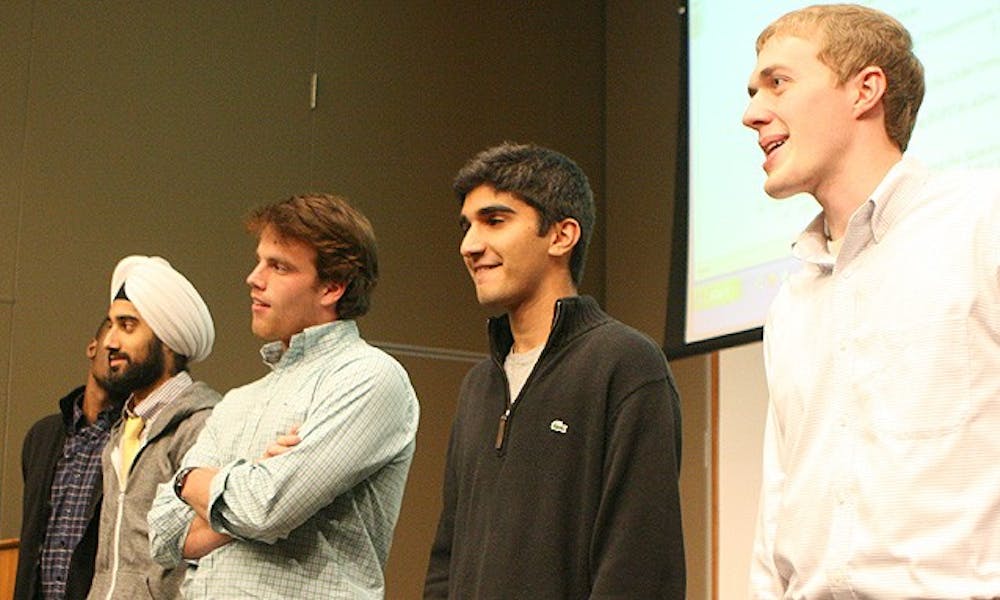Despite passing an amendment last week, Duke Student Government has postponed discussion of the Young Trustee electoral process, allowing the elections committee to review the bylaw before voting on it next week.
Last week, DSG passed an amendment changing the Young Trustee voting system from instant-runoff voting to a hybrid process that combines IRV with a first-past-the-post system. But at Wednesday’s meeting, Executive Vice President Pete Schork, a junior, presented an amendment eliminating all previous amendments pertaining to the hybrid system.
The issue will instead be discussed at the same time as the election bylaw, a document more appropriate for addressing voting method, Schork argued. The elections committee, a body that establishes election rules, will review the voting method Thursday.
“Last week, we passed a hybrid election process that I think doesn’t exactly work,” Schork said. “You’re just going to confuse the hell out of people... the reason for changing the bylaws is to make the process more transparent.”
The IRV process used in last year’s election caused controversy because none of the three Young Trustee candidates received a majority of the votes. Zach Perret, Trinity ’10, received the fewest votes, so the IRV system called for Perret’s voters’ second-choice votes to be added to John Harpham and Chelsea Goldstein’s totals, both Trinity ’10. As a result, Goldstein won the most first-choice votes, but Harpham won the election by three votes.
The new hybrid IRV/FPTP system was designed to avoid a repeat of last year’s issues and to bring transparency to the electoral process. Schork noted that the hybrid process developed in last week’s meeting was the product of necessary debate but is an issue more suited for discussion among election committee members.
“What we passed last week is questionable,” added junior Kaveh Danesh, vice president for academic affairs. “We aren’t fully informed on what’s right and what’s wrong.”
The amendment passed Nov. 3 also moved issues concerning the Young Trustee electoral process—which were previously included in the Young Trustee bylaw—to the DSG election bylaw that pertains to all elections. Schork said he hopes that the bylaw will be transparent and can be distributed to the student body.
The revised Young Trustee bylaw, which gives the election committee a say in the formation of the electoral process, passed unanimously.
In other business:
The Senate approved a statute introduced by Vice President for Student Affairs Gurdane Bhutani, a sophomore, that will allow the reallocation of funds by the Student Organization Finance Committee. The bylaw, which permits SOFC to reallocate funds less than $1,500, allows groups to petition to move money from one account to another.
The Senate also approved a motion to transfer funds from the Intercommunity Council, which no longer exists, to the legislative discretionary fund.
Durham and Regional Affairs Senator Marcus Benning, a freshman, proposed DSG endorsement of the DukeConnects Challenge Student Group Triathalon, a community service challenge that will begin after Winter Break. Although the body expressed interest in the project, Durham and Regional Affairs is expected to revise the challenge and revive it at a later meeting.
Get The Chronicle straight to your inbox
Signup for our weekly newsletter. Cancel at any time.

